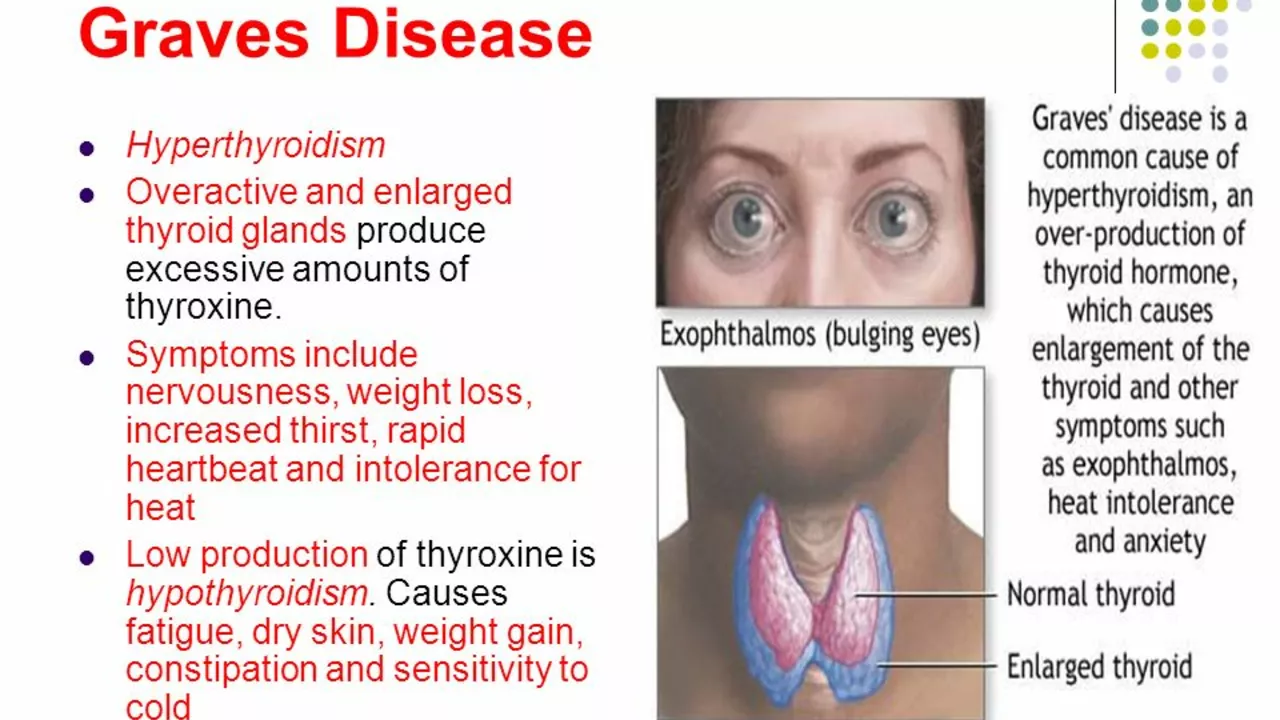Understanding Hyperthyroidism
Before delving into the specifics of hyperthyroidism in men, it is essential to understand what hyperthyroidism is. Hyperthyroidism is a condition in which the thyroid gland - a small, butterfly-shaped gland located in the neck - produces an excess amount of thyroid hormones. These hormones play a critical role in controlling the body's metabolism, which affects how the body uses energy. The condition can accelerate the body's metabolism, causing sudden weight loss, rapid or irregular heartbeat, sweating, and nervousness or irritability.
Prevalence of Hyperthyroidism in Men
Although hyperthyroidism affects women more often than men, men are not immune to this condition. Indeed, hyperthyroidism in men is less frequent, but it can have more severe consequences if left untreated. The symptoms may be subtle and thus overlooked, leading to a delay in diagnosis and treatment. This delay can result in severe complications, including heart problems, brittle bones, and thyroid storm - a sudden and potentially life-threatening intensification of symptoms.
Symptoms of Hyperthyroidism in Men
Hyperthyroidism can present a variety of symptoms, which can sometimes make it difficult to diagnose. Some common symptoms include unintentional weight loss, increased appetite, rapid heartbeat or palpitations, anxiety, irritability, tremors, sweating, and changes in menstrual patterns for women. In men, specifically, there can be additional symptoms such as reduced libido and gynecomastia (enlarged breasts). If you notice any of these symptoms, it is vital to seek medical attention promptly.
Diagnosis of Hyperthyroidism
Diagnosing hyperthyroidism involves a series of tests, starting with a physical examination. Your doctor may check for an enlarged thyroid gland, a rapid pulse, moist skin, and any signs of tremor. Blood tests will then be carried out to measure the levels of thyroid hormones (thyroxine, or T4, and triiodothyronine, or T3) and thyroid-stimulating hormone (TSH) in your body. If the results of these tests are inconclusive, further tests such as a thyroid scan or ultrasound may be recommended.
Treatment Options for Hyperthyroidism in Men
Once diagnosed with hyperthyroidism, the treatment options range from medication to surgery, depending on the severity and the cause of the condition. Antithyroid drugs such as methimazole and propylthiouracil can help to reduce symptoms by preventing the thyroid gland from producing excess hormones. Radioactive iodine therapy is another common treatment, which works by gradually shrinking the thyroid gland. In severe cases, surgery to remove all or part of the thyroid gland may be necessary.
Impact of Treatment on Men's Health
The treatment of hyperthyroidism can have a significant impact on a man's health, particularly his sexual and reproductive health. Some men may experience changes in their libido and erectile function. Moreover, the treatment may also affect fertility. However, these effects are usually temporary and improve once the condition is under control. It is important to discuss these potential side effects with your doctor before starting treatment.
Living with Hyperthyroidism
Living with hyperthyroidism can be challenging, but with the right treatment and lifestyle modifications, it is manageable. Regular exercise, a balanced diet, and adequate rest can help to alleviate some of the symptoms. At the same time, regular follow-ups with your doctor are vital to monitor your condition and adjust treatment as necessary. Emotional support from loved ones and joining support groups can also be beneficial.
Preventing Hyperthyroidism
While there is no surefire way to prevent hyperthyroidism, certain measures can reduce the risk. These include eating a balanced diet rich in iodine, avoiding excessive consumption of soy products and certain vegetables (like cabbage and broccoli), and not smoking. Regular check-ups are also crucial for early detection and treatment. Remember, being proactive about your health is the key to prevention.







Jeff Ceo
June 28, 2023 AT 00:18